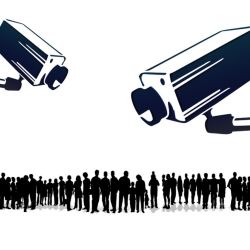Two federal courts have ruled that the Biden Administration unduly influenced social media moderation during the COVID-19 pandemic. Some public health and legal experts have argued that these efforts were necessary and did not constitute censorship. They are downplaying the extent of the government's efforts and overlooking their serious consequences.
Should the federal government pressure social media companies to censor scientific “disinformation”? For anyone who values open inquiry, public health and free speech, the answer has to be an emphatic “no.” Ample evidence from recent history–including myriad examples from the COVID-19 pandemic–clearly illustrate that federal bureaucrats, politicians and their paid apologists in academia are utterly unqualified to separate mis- or disinformation from sound science and skepticism.
These critical issues are at play in the ongoing State of Missouri v. Biden case, now dubbed Murthy v. Missouri. The lawsuit was brought by Louisiana and Missouri alongside three scientists and two activists who claim their commentary during the pandemic was suppressed by social media platforms at the behest of the Biden Administration.
A US district court in Louisiana agreed with the plaintiffs and prohibited the federal government from trying to influence the moderation policies of social media companies. The Fifth Circuit Court of Appeals affirmed the decision, though it narrowed the scope of the district court’s ruling. The case is headed to the US Supreme Court on March 18.
Many public health and legal experts, including my esteemed ACSH colleagues Drs. Henry Miller and Barbara Billauer, take the view that the government is obligated to limit the spread of disinformation that could harm public health. Moreover, they maintain, demonstrably false claims should not be afforded free speech protection. Miller and Billauer summarized the argument well in their recent story Part II: The Clash Between the First Amendment, Social Media, and 'Anti-Vaxx-Misinformation:
“Another troublesome kink is the [Fifth Circuit’s] couching this matter as preserving competing ‘viewpoints.’ But the dissemination of intentionally misleading and dangerous vaccine misinformation – or, more accurately, disinformation – should hardly be considered speech warranting constitutional protection .”
Protecting public health is an undeniably noble cause. It’s also true that competing viewpoints in scientific debates aren’t always equal. Nevertheless, efforts to defend the Biden Administration downplay two critical issues related to social media censorship:
-
First, the government didn’t merely persuade social media platforms to limit disinformation; it launched a coordinated campaign involving several federal agencies and state-funded NGOs to suppress speech it found politically unhelpful.
-
Second, the federal government routinely perpetuated misinformation throughout the pandemic. That should disqualify it from policing scientific claims on social media.
Censoring factual information
Most criticisms of the lawsuit focus on low-hanging fruit, such as efforts to censor obviously inaccurate claims made by anti-vaccine campaigners like RFK, Jr. This portrays the government’s actions as noble efforts to protect the public from deliberate deception. However, the Biden Administration also wanted the tech giants to censor accurate information because it feared social media users were misinterpreting it.
We know this is the case because the Virality Project–a collaboration between Stanford University, multiple federal agencies and a cohort of (often) taxpayer-funded activist groups–reported many factual social media posts to Twitter and Facebook as problematic. These details were confirmed in the Twitter Files, released by veteran journalist Matt Taibi in early 2023.
For instance, the Virality Project flagged “true content which might promote vaccine hesitancy” for suppression. This included “stories of true vaccine side effects” and posts that contained information “such as individual countries banning certain vaccines.” These examples were classified as potentially "malinformation," which could be "exaggerated or misleading."

Screen shot of a Virality Project message to social media platforms. Source: Twitter files
The lawsuit against the Biden Administration cited similar examples, like one instance where Facebook told the World Health Organization (WHO) it was “reducing the virality” of “often-true content.” Reason Magazine reported last March that Virality reported posts opposing “vaccine passport systems for their imposition on rights and freedoms, and even discussion of legitimate scientific research on breakthrough infections on natural immunity.”
The slope is very slippery as it turns out. Once empowered to suppress objectively false information, the censors inevitably and rapidly expand their authority to restrict content they find offensive for subjective reasons. In this instance, they believed the average social media users couldn't be trusted to properly interpret factual information. Censorship begets more censorship, in other words.
Yes, it was censorship
The federal government was intimately involved in these efforts. That’s abundantly clear from the Fifth Circuit ruling, which observed that officials from the White House, the CDC, the FBI, and several other agencies
“…[U]rged the platforms to remove disfavored content and accounts from their sites. And, the platforms seemingly complied. They gave the officials access to an expedited reporting system, downgraded or removed flagged posts, and deplatformed users. The platforms also changed their internal policies to capture more flagged content and sent steady reports on their moderation activities to the officials.”
Critics of the court’s decision insist that the platforms’ collaboration with the government was technically voluntary, thus sidestepping legitimate complaints that these efforts constituted bona fide censorship. But this is not the full story. Multiple messages from federal officials to Facebook employees indicated that there would be repercussions if the company did not step up its moderation efforts.
In one instance, an official told Facebook that the White House “remain[ed] concerned” that the platform was encouraging vaccine hesitancy, a “concern that is shared at the highest (and I mean highest) levels of the [White House].” On a previous occasion, a White House staffer wrote “that they felt Facebook was not ‘trying to solve the problem’ and the White House was ‘[i]nternally . . . considering our options on what to do about it [my emphases].’”
The Biden Administration also made public comments clearly indicating there could be regulatory consequences for social media platforms that did not do more to stop the spread of “disinformation.” The Fifth Circuit observed:
“... [T]he White House Press Secretary stressed that, in regard to problematic users on the platforms, the ‘President has long been concerned about the power of large’ social media companies and that they ‘must be held accountable for the harms they cause.’”
“She continued that the President “has been a strong supporter of fundamental reforms to achieve that goal, including reforms to [S]ection 230, enacting antitrust reforms, requiring more transparency, and more [my emphasis].”
The state-funded activist groups that defended and aided the government’s "voluntary" social media moderation efforts where arguing in favor of these legal reforms.
The Aspen Institute, funded by the State Department and USAID, released a 2021 report on “information disorder” concluding that “the government should take steps to reduce false information, even if it means losing some freedom to access and publish content.” The report’s justification for this loss of freedom was a 2021 Pew poll reporting that 48 percent of Americans agreed that online speech restrictions were necessary.
Co-authored by former Department of Homeland Security cybersecurity expert Chris Krebs, the report outlined a "Comprehensive federal approach" to combat social media misinformation. The specifics of this approach included "Amendments to Section 230 of the Communications Decency Act," which gives social media platforms immunity for third-party content shared on their platforms.
This is probably why the tech giants, despite their pricey lawyers and extensive lobbying reach in DC, we're willing to cooperate with the Biden Administration. Modifying section 230 would expose the platforms to serious legal liability, and that would incentivize them to crack down on alleged misinformation to avoid more federal regulation of their services.
Put simply, the government did much more than send emails trying to persuade the platforms to moderate misinformation. It told the platforms which posts and accounts to throttle, called for changes to
moderation policies and threatened consequences if Twitter, Facebook and the other tech companies refused.
Who censors the censors?
An equally important problem is that public health officials frequently disseminate false information. If we apply the Virality Project's standards to some of the government's COVID pronouncements, we could easily classify them as "exaggerated or misleading."
For instance, federal public health officials argued in June 2020 that lockdowns saved millions of lives, supposedly offsetting their negative economic consequences. This conclusion was disputed by other scientists at the time, including ACSH advisor and microbiologist Dr. Alex Berezow. We now know that lockdowns didn't significantly reduce COVID morality. One recent review found that shelter-in-place orders reduced US COVID deaths in the spring of 2020 by an estimated 1.4 to 4.1 percent.
But that slight reduction came at the expense of other serious public health consequences—undiagnosed cancers, delayed surgeries, increases in drug and alcohol-related deaths and domestic abuse. These effects were well documented in the peer-reviewed literature by the fall of 2021.
Another important example: despite years of research showing that vaccine mandates often discourage people from getting essential immunizations, the Biden Administration insisted that mandatory COVID shots were a necessary public health intervention. That conclusion was also disputed by experts at the time. For example, I spoke to a bioethicist in April 2021 who argued in the BMJ's Journal of Medical Ethics that a mandate could backfire.
That conclusion is widely (though not universally) accepted today. The New York Times reported in mid-February that more public health experts recognize that treating Americans "as robots who existed merely to minimize the chances of contracting a virus" backfired. This "illiberal ideology," the Times added, had the unfortunate effect of "fostering skepticism of scientific expertise while doing little to improve public health."
Then there were the many examples of public officials making politically motivated decisions. Here's just one: After the CDC decided in 2021 that masking in schools was no longer necessary, the agency abruptly changed course when a powerful teachers union pressured the Biden Administration to keep the masking guidance in place. Follow the science!
Conclusion
These cases illustrate that our revered public health officials and their academic proxies are human like the rest of us. They make mistakes and sometimes deliberately enact and defend policies that are at odds with the evidence. That should disqualify them as guardians of scientific discourse on social media, at least if everybody is held to the same standards of mis- and disinformation.
The typical rebuttal to my point here is that people who challenge the public health establishment are armchair quarterbacks; they complain after the fact from the comfort of their laptops while CDC and other agencies made tough calls and have to live with the consequences. But this assertion is simply incorrect. As we've seen, many experts identified flaws in the government's COVID response as it was being implemented. They were shamed and ostracized precisely because they spoke up during the pandemic.
And now those who did the shaming and ostracizing assert the authority to regulate everyone's speech on social media. It would be amusing if it weren't so dangerous.

